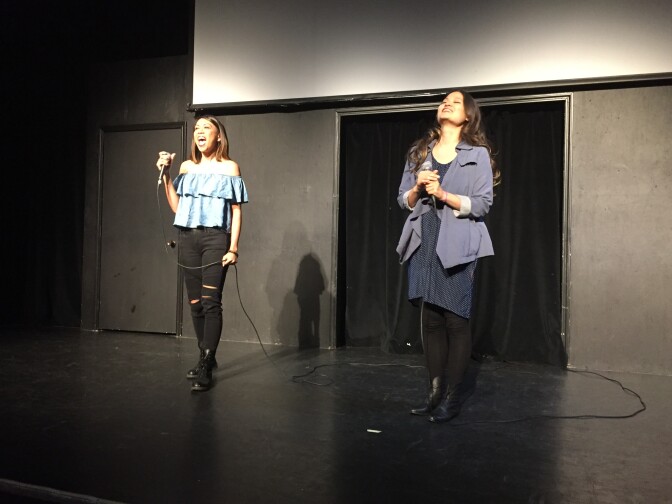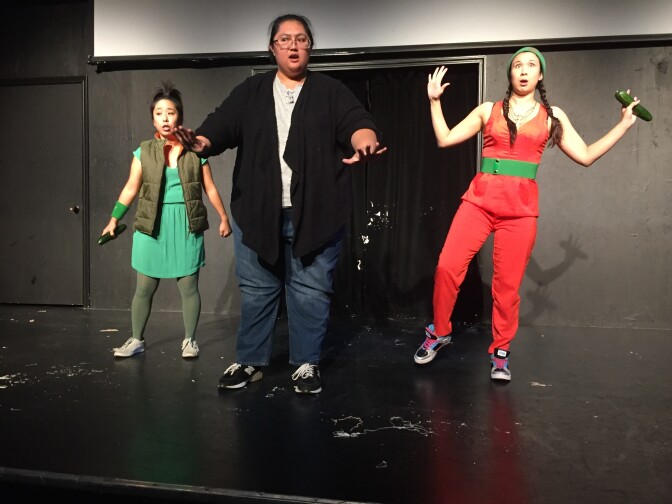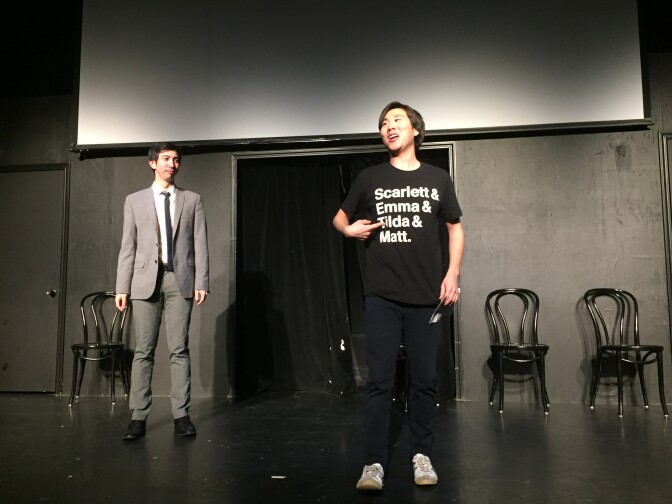This story is free to read because readers choose to support LAist. If you find value in independent local reporting, make a donation to power our newsroom today.
This archival content was originally written for and published on KPCC.org. Keep in mind that links and images may no longer work — and references may be outdated.
Jokes aside, Asian-American comedians serious about visibility
At the Upright Citizens Brigade theater on Sunset, comic Jenny Yang was on stage wishing aloud Hillary Clinton had beat Donald Trump.
"You know why?" Yang asked."Because it was time for a matriarchy."
Yang's face goes blank as she peers into a sold-out theater packed with 20- and 30-something Asian-American comedy fans.
"I'm a feminist, don't get me wrong," she said. "I don't want equality. I want to oppress men!"
Howls and claps meet the opening set of a show filled with improv and sketch comedy that's sweet at times, raunchy at others and often profane — appropriate for a show that's called "Asian AF," as in Asian As F***.
It's the first all-Asian-American show on UCB's mainstage, a milestone, its organizers say, for a demographic of entertainers who struggle to get noticed in Hollywood, and who've had a particularly trying year that's seen high-profile Asian roles reinvented with white film actors. (Think Dr. Strange and Ghost in the Shell.)
"Just to say it's on the mainstage gives it a feeling of 'Wow, this is a big deal,'" said Will Choi, one of the producers of "Asian AF."
The improv comedy world has turned out superstars like Stephen Colbert, Kate MacKinnon and Amy Poehler, one of UCB's founders. Fewer comedians of color, however, have emerged from this corner of comedy, and improv schools have been called out for having a diversity problem. But Choi said that UCB's eagerness to play host to "Asian AF" signals changing attitudes and that yes, Asian-Americans are funny.

Much of the show does not play to race, but some of the biggest laughs came from nods to shared Asian-American experiences. One sketch is a game show hosted by UCB regular Mike Lane where you decode what your hard-to-please Asian mother means when she says things like ‘Are you hungry?’
The correct answer? "I love you."
"I know my mom can never say those three little words but whenever she offers me food I know deep down in her heart that she loves me, OK?," Lane said.
Asian-Americans comedians have been carving out their own space, with special success in Los Angeles. This fall, the city played host to the second year of The Comedy Comedy Festival featuring comedians of Asian-American descent (comic Yang is a co-organizer.) It's also home to the Cold Tofu, the country's first Asian-American comedy improv and sketch group.
But at improv training grounds like UCB, Asian-Americans are in scarce number.
Backstage at "Asian AF," Zach Oyama waits in the greenroom to go on with his improv teammate Dhruv Uday Singh.
"This is the first time I’ve been in this room and looked around and said, Oh there’s only Asian people in the green room," Oyama said.
"As far as Asians go, there’s an even smaller community of Indians," Singh pointed out.

UCB's roster of regular performers is overwhelmingly white, which is the norm in improv and sketch. Take comedy behemoth Saturday Night Live: after more than 40 years on T.V., there are no Asian-Americans on it. That’s how the show's sole Latina cast member Melissa Villaseñor ended up playing Filipina-American journalist Elaine Quijano in a recent sketch about the vice-presidential debates. Villaseñor addressed the casting choice at the top of the sketch, breaking the fourth wall.
"I’m the new Hispanic cast member," Villaseñor said in a deadpan. "And tonight I’ll be playing Asian moderator Elaine Quijano because…baby steps."
Asian AF producer Choi said the lack of Asian-Americans on such a long-running show is a "bummer," because it's important to see people who look like you. Choi said he was first inspired to try improv when he saw Korean-American actor Steve Yeun — Glenn on AMC's "The Walking Dead" — perform with a comedy troupe several years ago.
"Seeing that he’s doing it made me think I can do it too," Choi said. "That's the power of representation."
The "whitewashing" of Asian characters in films spurred Choi to produce and co-host with the Gilmore Girls' Keiko Agena a couple of free all-Asian American comedy showcases this year on a smaller stage at UCB. They were called "Scarlett Johansson Presents," a not-so-gentle jab at the actress for taking on the lead role in the upcoming Hollywood adaptation of the Japanese anime series Ghost in the Shell. Buoyed by the enthusiastic turnout, Choi joined other UCB performers Mike Lane and Connie Shin in pitching an all-Asian-American show for the mainstage.
It wasn’t a hard sell, said Mano Agapion, who coordinates UCB's diversity program.
"We know that we are lacking and we do want more Asian American performers on our mainstage," Agapion said.
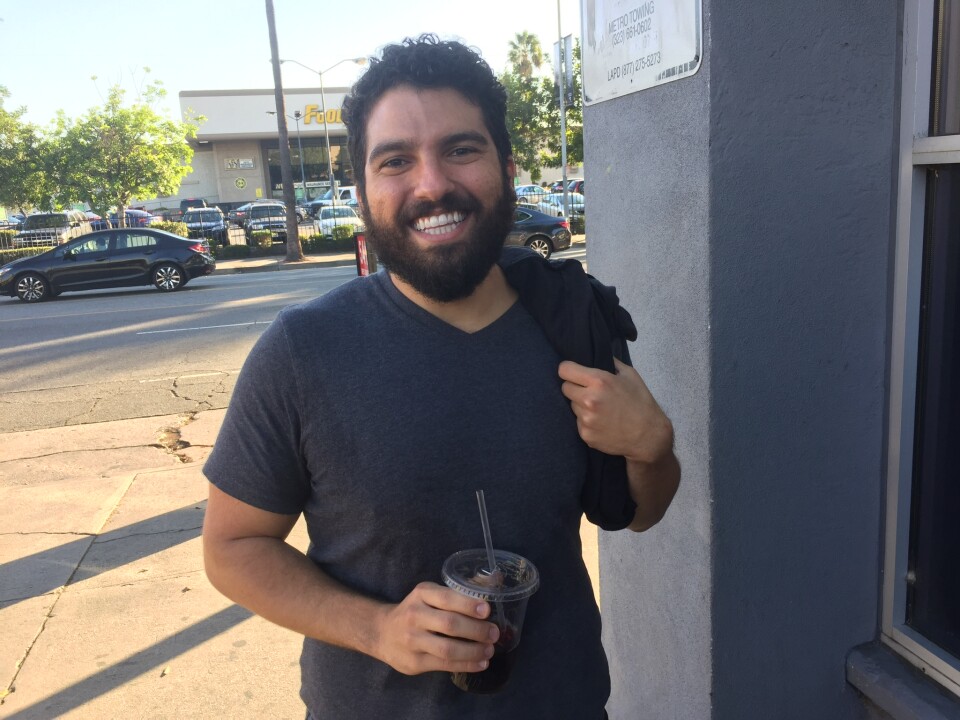
UCB had already hosted shows that were exclusively African-American, Latinos, LGBTQ — performers who Agapion said have been traditionally sidelined.
"For years, people in charge have said, ‘Oh, they’re funny but I just don’t think they’re quite there whereas they would see a frattish white guy and be like ‘Yes! I completely get his voice," Agapion said.
UCB has taken some steps to develop a more diverse group of performers. The theater gives scholarships to students from underrepresented groups so they can take free classes at UCB's training center. Other talent incubators like The Groundlings and Second City have similar programs.
Also, Agapion hosts a weekly "diversity jam" that bills itself as "a fun, inclusive improv jam for everybody." Agapion, who is gay and Middle-Eastern, said the comedy scene needs different voices to be relevant and funny, not just "the straight white males in their 20s" who dominate improv.
"It’s a sport of leisure and traditionally that privileged population had the most time to pursue such a silly artform," Agapion said.
Eugene Cordero, a long-time UCB performer and a Filipino-American, said the improv scene is more diverse than when he started out at UCB in New York about 15 years ago. There were hardly any other Asian performers.
"I mean, I’d be able to count them on my hands," he said.

Cordero, now 38, gets why Asian-Americans have been slower to enroll in comedy schools. Growing up, he said, some found themselves the butt of jokes.
"People told you you were different and laughed at how you were different so then when you walk into an improv class and there’s, you know, 16 people in the class who are all Caucasian, the teacher is Caucasian going 'you’re all equal,' it doesn’t really feel like it’s really happening," Cordero said.
Cordero says he loves improv so much he was going to do it no matter what. Now he’s the guy other performers at the show tonight say blazed a path for them.
The new kids include 26-year-old UCB performer and actor Kim Cooper. Growing up as a Korean-American adoptee in Iowa, she said she was always cast in comedic roles in school theater. When she moved to Los Angeles, she found improv comedy to be a revelation — exciting and freeing, especially for someone working in an industry that likes to put Asian-Americans in stereotypical roles.
"There’s no time to get someone in to come in and censor you and be like, you’re Asian so you can only play a shop owner, you can only play a person with an accent," Cooper said.
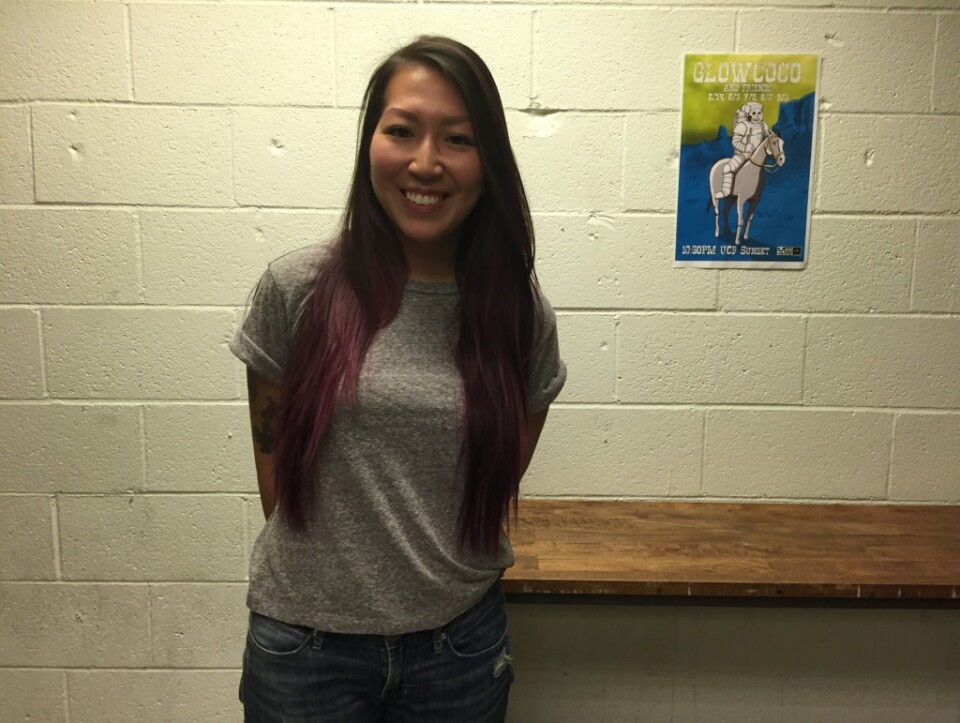
One of Cooper's favorite bits was when she played Steve Harvey on Family Feud.
"I’m 5 foot 2 and I have purple hair and tattoos," she said, laughing. "I’m small and I don’t look like Steve Harvey!"
Cooper’s improv team is the last act of the night. On stage, Cooper spins like a top between roles – a worker at Albertson’s, a woman stalked by a giant falcon, put-upon wife.
Sitting in the front row, 23-year-old Jenevieve Ting is captivated. She goes to a lot of improv and stand up shows, and she’s never seen so much Asian American comedic talent in one room. She said it was inspiring.
"You can’t be what you can’t see, so it’s nice to see people actually doing stuff and knowing that it’s possible," Ting said.
Ting has dabbled in comedy in college. She said the show she just saw makes her want to jump right back in.










